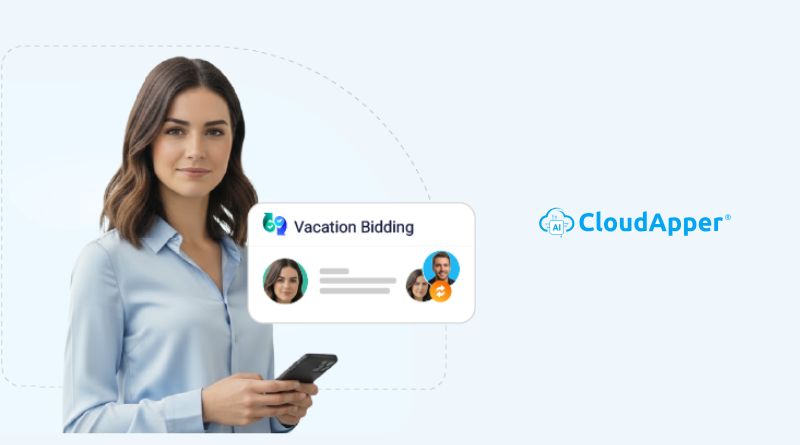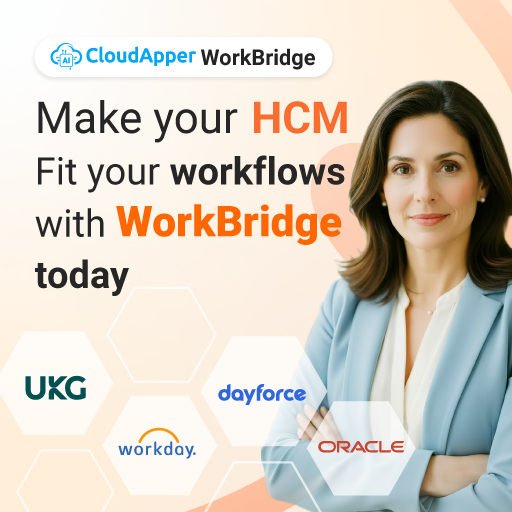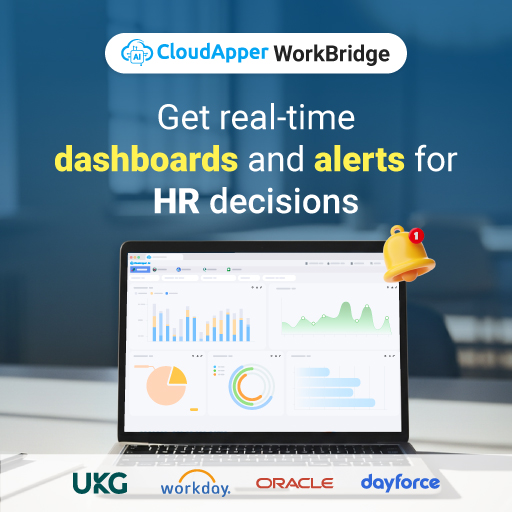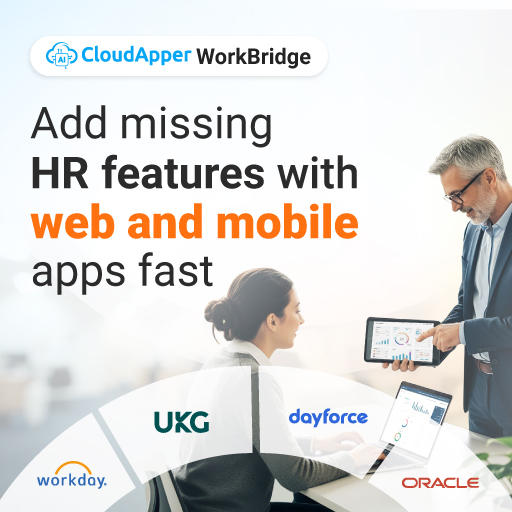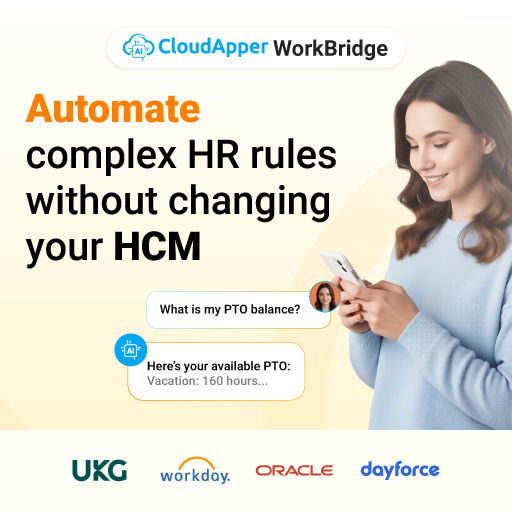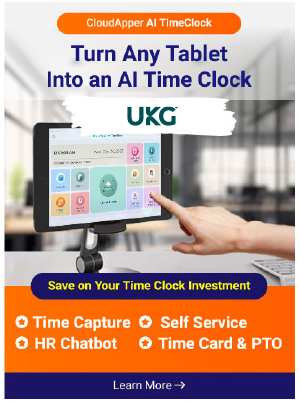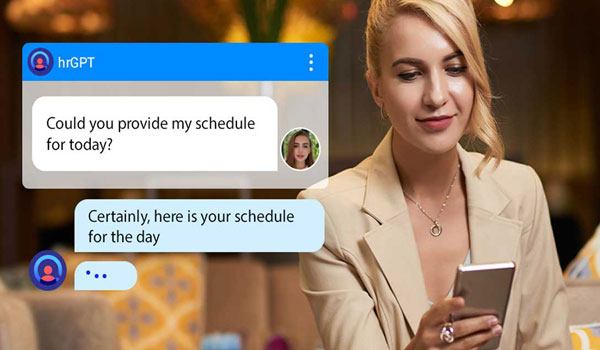Automated, transparent bidding integrated with UKG eliminates favoritism concerns, reduces grievances, and enforces policies consistently. CloudApper turns complex shift and vacation bidding into a fair, auditable process that strengthens trust, improves compliance, and simplifies workforce management.
Table of Contents
The phone call from HR always starts the same way: “We have a grievance about shift assignments.” For workforce managers using UKG, this scenario is all too familiar. An employee claims favoritism in vacation approvals. A union representative questions why a senior worker didn’t get the preferred shift. A manager scrambles to reconstruct the decision-making process from emails, spreadsheets, and memory.
The root problem isn’t the decisions themselves—it’s the opacity of how those decisions are made.

The Trust Gap in Traditional Bidding Processes
Whether you’re managing a unionized manufacturing facility or a non-union healthcare organization, shift and vacation bidding sits at the intersection of operational necessity and employee satisfaction. When handled manually or through disconnected systems, even the most well-intentioned managers face recurring challenges:
In union environments, collective bargaining agreements often specify detailed criteria for shift assignments, vacation approvals, and job bidding. Seniority rules, departmental requirements, and skill-based prerequisites create a complex matrix that’s difficult to apply consistently across hundreds of decisions. A single perceived violation can trigger formal grievances, arbitration costs, and damaged labor relations.
In non-union workplaces, the stakes are equally high but manifest differently. Without the structure of a CBA, employees may perceive inconsistency as favoritism. The lack of clear, documented processes erodes trust and can become ammunition in wrongful termination claims or discrimination complaints. When your best performer quits because they believe shift assignments are arbitrary, you’ve lost more than an employee—you’ve lost credibility.
The Compliance Imperative: Beyond Good Intentions
Manual bidding processes create three critical vulnerabilities that UKG users face regardless of their organizational structure:
Documentation gaps: When shift assignments happen through verbal approvals, email chains, or paper forms, reconstructing the decision trail becomes nearly impossible. During an audit, grievance, or legal discovery, “we followed our policy” is meaningless without proof.
Inconsistent application: Even with written policies, human administration introduces variance. One supervisor interprets seniority rules differently than another. A manager makes an exception during a crisis that becomes the new expectation. These inconsistencies compound over time, creating a patchwork of practices that no one can defend.
Reactive rather than proactive compliance: Most organizations discover their bidding process problems after they’ve caused damage—when the grievance is filed, when the complaint reaches HR, when turnover data reveals dissatisfaction. By then, you’re managing consequences rather than preventing them.
How Policy-Driven Automation Changes the Equation
Transparent, automated bidding systems integrated with UKG transform compliance from a defensive posture into a strategic advantage. Here’s how the paradigm shifts:
1. Codified Policy Becomes Enforceable Reality
CloudApper’s bidding solution for UKG allows organizations to translate their policies—whether from collective bargaining agreements, company handbooks, or operational requirements—into automated scoring and ranking algorithms. Seniority points, skill certifications, attendance records, performance ratings, and departmental needs become weighted factors that evaluate every bid consistently.
For a union environment, this means the contract language you negotiated isn’t subject to interpretation at the supervisor level. The system applies the same criteria to every employee, every time. For non-union organizations, it means the “fair and consistent process” described in your employee handbook actually functions as described.
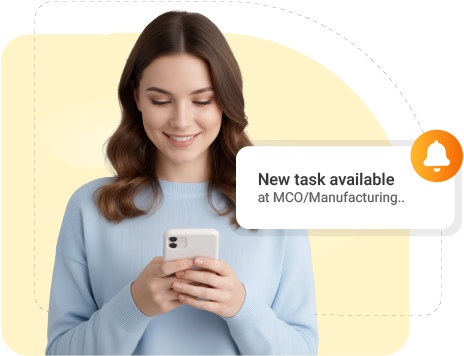
2. Complete Audit Trails Protect All Parties
Every bid submission, scoring calculation, approval decision, and notification gets timestamped and logged. When a question arises about why Employee A received the requested vacation week while Employee B didn’t, the system provides the complete decision logic: Employee A had higher seniority, submitted their request within the bidding window, and met all eligibility criteria. Employee B submitted late and had blackout dates due to departmental minimums.
This audit trail protects employees from arbitrary decisions and protects employers from unfounded claims. In grievance procedures, arbitration, or litigation, documentation isn’t reconstructed from memory—it’s generated automatically.
3. Real-Time Transparency Reduces Grievances Before They Start
Traditional bidding processes often operate as black boxes. Employees submit requests and wait for answers. When they’re denied, they don’t understand why. This information vacuum breeds suspicion and conflict.
Automated systems integrated with UKG can show employees where they rank in real time, what criteria affect their scoring, and why certain bids succeed or fail. This transparency doesn’t eliminate disappointment when someone doesn’t get their preferred shift, but it eliminates the perception of unfairness that drives formal complaints.
Real-World Application: Union and Non-Union Scenarios
Union Manufacturing Facility: A large automotive parts manufacturer with 800 hourly employees operates under a CBA that prioritizes seniority for shift bidding but includes exceptions for skill qualifications and production needs. Before automation, the HR team spent 40+ hours each bidding cycle manually scoring requests, fielding questions, and responding to grievances. Disputes over shift assignments were the single largest source of union grievances.
After implementing CloudApper’s bidding solution integrated with UKG Pro Workforce Management, the facility automated the entire process. Employees bid through a self-service interface, the system automatically scores based on CBA criteria, and assignments happen transparently. The result: grievances related to shift bidding dropped by 87%, and the HR team reclaimed hundreds of hours annually for strategic work.
Non-Union Healthcare System: A regional hospital network with multiple locations struggled with vacation approval consistency across departments. Some managers approved requests first-come-first-served, others used informal seniority systems, and others made ad-hoc decisions based on personal relationships. Staff nurses cited scheduling inequity as a primary reason for turnover.
By deploying automated vacation bidding through CloudApper integrated with UKG Ready, the network established transparent, consistent criteria across all facilities. Nurses could see available slots, understand their ranking, and plan accordingly. Manager burden decreased, and employee satisfaction scores related to scheduling improved by 34% within the first year.
The Technical Foundation: Integration Without Disruption
A critical concern for UKG users is system integrity. Your workforce management platform is the backbone of payroll, timekeeping, and labor analytics. The last thing you need is a solution that requires core system modifications, creates version upgrade challenges, or introduces vendor lock-in.
CloudApper’s approach works alongside your UKG environment without modifying the core system. The bidding platform pulls employee data, seniority information, skill qualifications, and attendance records from UKG through secure APIs. When bids are approved and assignments are made, the results flow back into UKG schedules seamlessly.
This architecture means:
- No risk to your production UKG environment
- No delays during UKG version upgrades
- No rebuilding customizations when policies change
- Complete data integrity between systems
Moving from Reactive to Strategic
The true value of automated, transparent bidding isn’t just reducing grievances or saving administrative time—it’s transforming how your organization thinks about employee relations and compliance.
Strategic workforce planning: When you have complete visibility into bidding patterns, preferences, and utilization, you can make better decisions about staffing levels, shift structures, and policy adjustments. Data shows which shifts are consistently under-bid, which vacation periods create coverage gaps, and where policy changes could improve both employee satisfaction and operational efficiency.
Predictable compliance posture: Instead of wondering whether your bidding process will withstand scrutiny, you know it will. The audit trail exists before the audit. The policy is enforced before the grievance. Compliance becomes a known quantity rather than a latent risk.
Cultural transformation: Over time, transparent automated systems change how employees perceive fairness in the workplace. When people understand the rules and see them applied consistently, trust increases. This cultural shift extends beyond bidding to overall employee relations and organizational commitment.

Conclusion: From Conflict to Confidence
The future of workforce management isn’t just about efficiency—it’s about creating defensible, transparent, equitable processes that serve both business operations and employee needs. For UKG users, automated bidding represents an opportunity to transform one of the most contentious aspects of workforce management into a competitive advantage.
CloudApper’s bidding solution, purpose-built for UKG environments, turns policy into practice, opacity into transparency, and conflict into confidence. Whether you’re navigating complex union agreements or building trust in a non-union workplace, automated bidding creates the foundation for better employee relations and bulletproof compliance.
The question isn’t whether your organization can afford to automate—it’s whether you can afford not to.
Ready to transform your bidding process? Learn how CloudApper integrates with UKG Pro, UKG Ready, and UKG Workforce Central to automate shift, vacation, and job bidding without modifying your core system. Visit CloudApper to see how transparent, policy-driven automation protects your organization while empowering your employees.


